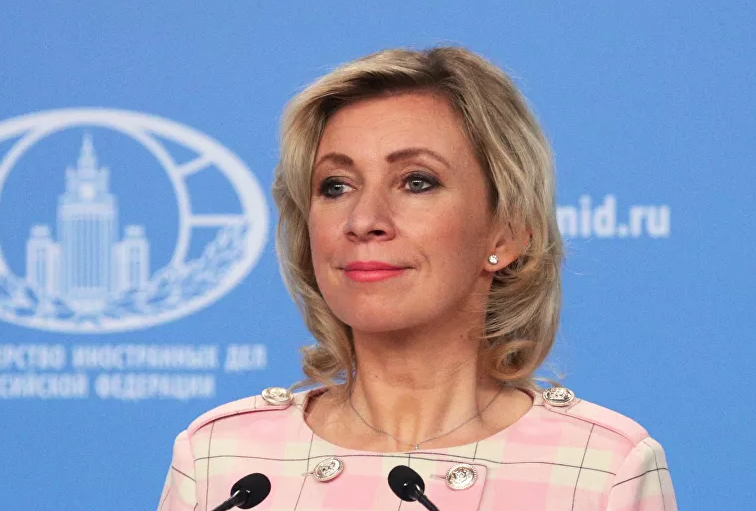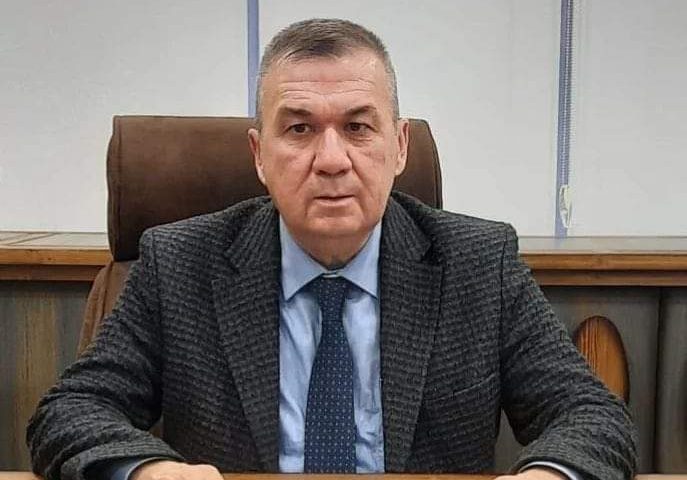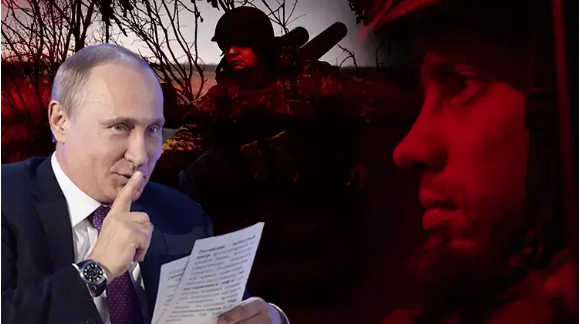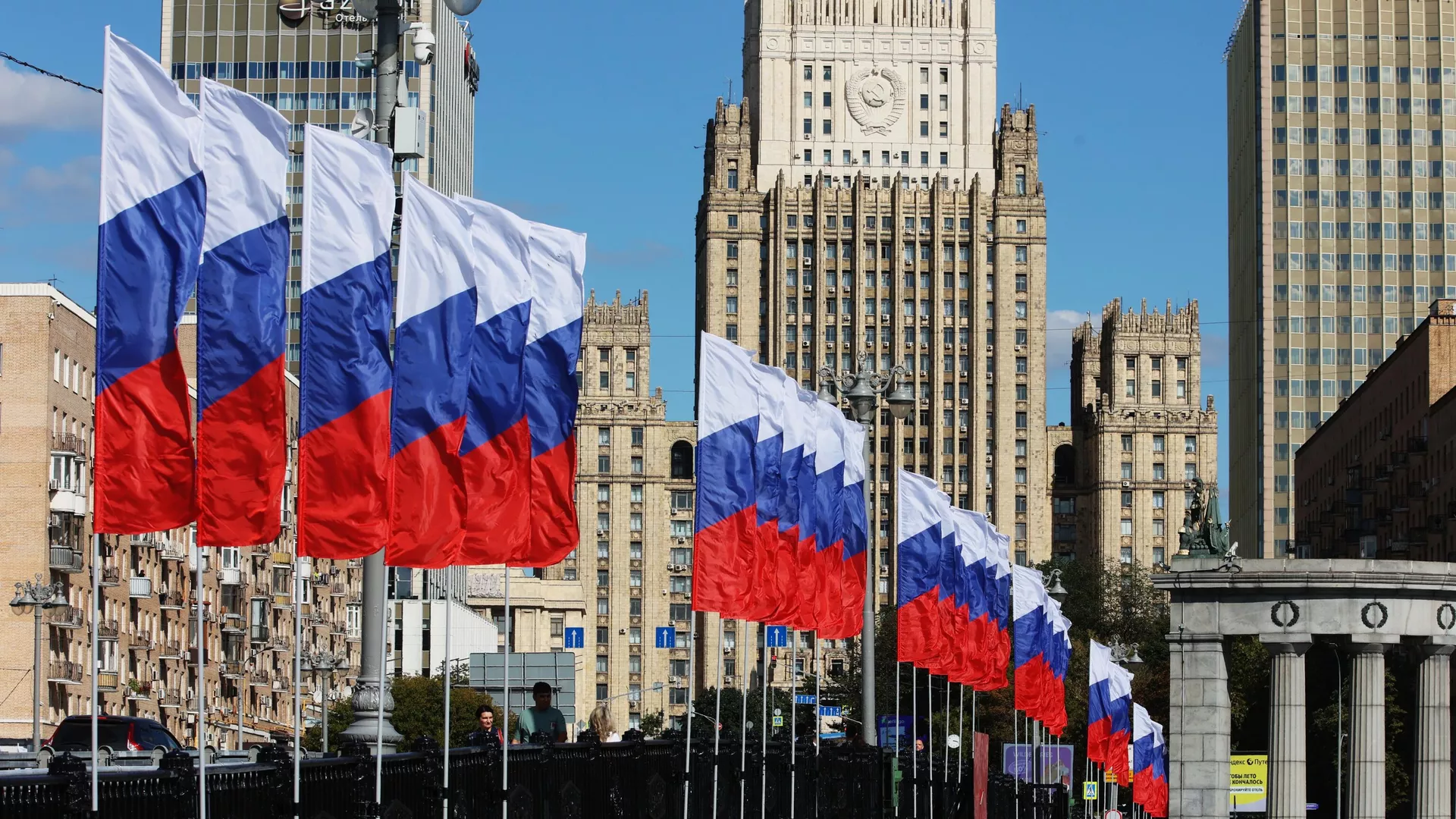The Ukrainian army stunned the world when it sunk Moscow, the flagship of the Russian Black Sea Fleet, on April 14. Despite their advanced defense systems, the Ukrainians managed to hit the ship with domestic-made Neptune missiles, according to a widely circulated international media report. On the other hand, although some did not mention it enough, this extraordinary attack used non-domestic unmanned aerial vehicles (UAVs). According to Ukrainian officials, the attack was carried out using two Turkish-made Bayraktar TB2 drones that escaped the ship’s radar and provided the correct coordinates for targeting the missiles.

In fact, this was not the first time that Turkish drones proved extremely important to Ukraine’s resistance to the Russian invasion. Since the early days of russia’s invasion of Ukraine, low-cost and lethal TB2 remote-controlled drones have proven to be effective in destroying Russian tanks and preventing Russia‘s advance. Actually, it’s not a coincidence. In January, when Russia deployed large numbers of troops to its border with Ukraine, Kiev quietly began a military exchange with Turkey and purchased 16 Bayraktar TB2s. Thus, Ukraine, together with other Turkish weapons systems, made a total purchase of about $60 million. This amounts to thirty times the amount spent on defense equipment from Turkey during the same period of the previous year. These purchases were added to about 20 TB2 model drones that Ukraine had previously purchased from Turkey. Drones called ‘Bayraktar’, which means ‘flag bearer’, are so important to the Ukrainian resistance that they inspired a national anthem composed for Ukraine. The anthem went viral on social media.
Although the drones used by Ukraine are on the agenda, much less attention is paid to the supplier country’s strategy. In this context, TB2 drones produced by a Turkish company with close ties to President Recep Tayyip Erdogan go beyond being a critical balancing act in the war in Ukraine. Drones have played a crucial role in some conflict zones in the Caucasus, Africa and the Middle East in recent years. Ankara has managed to expand its geopolitical influence by marketing drones in about twenty countries, mostly low and middle income. At the same time, he has put himself in a position to determine the outcome of the conflicts of major regional powers.
However, Ankara’s drone diplomacy is not unlimited. Increased Turkish military moves in the Middle East, in countries such as Libya, have prompted opponents such as Greece and Egypt to form large-scale new alliances aimed at limiting its power. Turkish drones used in Ukraine also threaten to undermine the delicate balance in Turkey’s relations with Russia. Republicans and Democrats in the US Congress have expressed concern about the rapid increase in the number of Turkish-made drones in recent years. Senator Bob Menendez of New Jersey, a senior member of the U.S. Senate Foreign Relations Committee, spoke about the role played by remote-controlled drones in Azerbaijan’s conflict with Armenia in 2020. “The sales of Turkish-made drones are dangerous, destabilizing and a threat to peace and human rights,” Menendez claimed.
After years of unilateralism that has led Turkey to take more enemies from the region and undermined its alliances with the United States and European countries, the Turkish government has been able to use drones of bayraktar model and other models to change its international image. The drones helped Turkey defend its interests by using relatively limited diplomatic resources in the Middle East. Ankara’s military assistance to Kiev has given Erdogan new leverage in NATO at a time when his government is facing a dangerous situation at home and relations with the United States and Europe have been in crisis for several years. If Turkey can continue to successfully manage and benefit from the drone program, it can gain a new and important form of influence and in doing so give a new meaning to drone warfare.
Without feeling and avoiding radar
Turkey launched its drone program in anger at foreign suppliers. In the late 1990s, the United States was the leading manufacturer of armed drones (WMDs). Turkey has sought to acquire US technology to fight the PKK, which the United States has also declared a terrorist organization. He then left the United States in 2005 and turned to Israel. But it faced similarly disappointing results. Ankara’s efforts in recent years to buy more advanced U.S.-made drones, including an armed version of the MQ-9 Reaper, have also failed. He finally decided to develop his own drones.
An official Turkish company developed a drone prototype in 2012 and managed to effectively conduct reconnaissance missions by 2016. In the same years, bayraktar TB2 model UAV was developed by Selçuk Bayraktar, a trainee engineer at the Massachusetts Institute of Technology, who later married Erdogan’s daughter. Mass production of Bayraktar TB2 was started in 2012. Within three years, it gained the ability to make precise strokes and became an important new tool in Turkey’s arsenal. A similar uav to the US MQ-1 Predator and MQ-9 Reaper, the TB2 is a medium-altitude high endurance (MALE) drone.
Compared to their Turkish counterparts, U.S. drones are arguably more advanced because their range is ten times greater than those made by the United States. It’s also twice as fast and capable of carrying twice as many weapons. By contrast, US-made drones are three or even four times more expensive than Turkish-made drones. It is worth noting that only ammunition for some drones developed by Western countries costs more than a fully equipped TP2, which is estimated to cost less than one or two million dollars.
Since 2015, the Turkish Armed Forces (TSK) have begun using drones in their long-running fight against the PKK. Over the previous three years, new model drones have allowed Turkey to remove most PKK elements from Turkish territory and neutralize several PKK fighters, including some of its leaders in Iraq. Ankara soon began using drones against members of the mostly Kurdish People’s Defense Units (YPG), known in Syria as an extension of the PKK. This strategy allowed Turkey to strengthen its control over its southern and southeastern borders and increase its influence in northern Syria and Iraq without risking large military forces on the ground. For the first time in decades, Ankara was able to gain a decisive advantage in the long struggle with the PKK.
Drones sold to worldwide
The advantages that made Bayraktar so indispensable for the security priorities of the Turkish government soon proved equally beneficial for many small and medium-sized forces abroad. Now, with relatively little investment, a country can access lethal military technology that can change the dynamics of the conflict or provide an effective deterrent against rebels or other forces. Turkey started exporting TB2 in 2017. In five years, in Europe; In Albania, Poland and Ukraine, Central and South Asia; Kyrgyzstan, Pakistan and Turkmenistan, Ethiopia, Libya, Morocco, Somalia and Tunisia in Africa, the Gulf; In Qatar and the Caucasus; It has sold drones to about twenty countries, including its allies and partners such as Azerbaijan. Although these arms deals were made with a mixture of trade and geopolitics, they were always associated with countries where Turkey had strategic interests.
Following these agreements, Turkish-made drones changed the course of some conflicts. In Libya, in 2020, the Turkish-backed and internationally recognized Government of National Accord (UMH) in Tripoli succeeded in repelling a violent attack by The Caliph Hafter, backed by Russia. The same drones helped Azerbaijani forces retake territory in the disputed Nagorno-Karabakh region, which has been under the control of Armenian forces for decades. Drones have stopped an offensive by opposition forces in Syria’s Idlib province aimed at pushing them into Turkey. Turkish-made drones supplied to the Addis Ababa government in Ethiopia have helped turn the tide of the civil war between rebels and government forces in the Tigray region in favor of government forces. Just like others, Turkey’s interest in Ethiopia is not only commercial. Ankara sees its strong relations with Addis Ababa as a means of highlighting Turkey’s influence in Africa and playing a counter-role against Egypt, where it is competing for regional influence.
The role of Turkish-made drones in multilateral conflicts
Turkey’s emergence as a leading supplier of drones to low- and middle-income countries has strengthened its power, but it has also created new equations. Essentially, some countries, including Ethiopia, Somalia and Tunisia, purchased the drones without obtaining a complete suite of technical systems for operating them. As a result, these countries may not achieve definitive results against an enemy that is well educated or superior in number, and sometimes they can also make mistakes.
The Ethiopian government has been heavily criticized for the casualties of Turkish-made drones during clashes in the Tigray region in the north of the country. These and similar situations have contributed to criticism of Turkey by some US officials.
In addition, its impact on competing countries can be an even bigger problem. Turkey’s involvement in conflicts such as the one in Libya has alarmed its opponents, including Egypt, France and the United Arab Emirates (UAE). In May 2020, as Turkish drones changed the course of the civil war in Libya, Egypt formed an informal alliance with the Greek Cypriot Administration of Southern Cyprus (KRG), France and Greece to counter Turkey’s activities in the Eastern Mediterranean through political coordination, diplomacy and naval forces, Sharku’l Avsat reported in an analysis by Independent Arabia. Finally, the United States increased its military assistance to Russia and, to some extent, to Turkey and to Greece as a precaution against its growing military presence in the region.
Ukraine dilemma
The importance and perhaps the most dangerous dimension of Turkey’s diplomacy with drones has emerged in Ukraine. Kiev first used TB2 model drones it purchased in 2019 against Russian-backed separatists in the Donbass region in 2021. But with Russian President Vladimir Putin’s war against Ukraine, these weapons have become more dangerous when used directly against Russian forces for the first time. More than 60 successful TB2 attacks were carried out on Russian tanks, howitzers, military vehicles and even supply trains. It is thought that this number may be much higher with the undeclared. The unexpected role of Bayraktar drones in Kiev’s increase in power against Moscow has had significant consequences for Turkey’s relations with the West. It has elevated Ankara’s position within NATO to a level not seen in years. There is currently an improvement in Turkey’s relations with some of the leading European governments, including France.
However, the drone war in Ukraine has raised new and complex questions about Turkey’s efforts to maintain active relations with Russia. In fact, Turkey has faced Russia in more than one region from the Black Sea to Syria and Azerbaijan, and it is still coming. The assessment is that Ankara will do everything in its power to ensure that Kiev does not strategically fall under Moscow’s control. This is because Putin’s aggression against Ukraine has a sense of realism in Ankara regarding Russia, Turkey’s arch-enemy. It is worth noting that Ankara now values Ukraine and other countries in the Black Sea more than ever and considers them indispensable allies in creating a balance bloc against Russia, which remains north of the Black Sea.
However, if Putin succeeds or fails to invade part of Ukraine and blames Turkey for this failure, he can exert new and significant pressure on Turkey. Putin, for example, could target Ankara’s interests in Syria by causing a massive flow of refugees from Idlib to Turkey. Anti-refugee sentiment in Turkey has increased especially recently. The main reason for this is the economic crisis in the country. In this context, it is claimed that if there is a large influx of refugees into Turkey, Erdogan will probably come under great pressure. Putin could also put economic pressure on Turkey by restricting Turkey’s exports of agricultural products to Russia, banning Russian tourists from going to Turkey or ending gas supplies to Turkey. Such moves could undermine Turkey’s economic recovery.
Turkey and Moscow-Kiev line
Ankara has openly downplayed its role in arming ukrainians. He stressed that it was a private company, not the Turkish government, that supplied Bayraktar drones to Ukraine. Although it is a country that supplies drones to Kiev, it has tried to mediate in the Russia-Ukraine war, including holding a diplomatic forum. He held the Antalya Diplomacy Forum in the Turkish resort city of Antalya on March 10th with the participation of the foreign ministers of Ukraine and Russia. Turkey really fears a slightly lesser defeat than Russia’s victory. This is partly because Russia is a useful trading partner, and partly because the agreements made by turks and Russians in the Caucasus, Libya and Syria (although it is a manipulative approach) could be jeopardized by Russia’s defeat. If Putin has a list of countries to punish for supporting Ukraine after the war, Turkey is at the top of this list after the Baltic states, Poland, Britain and the United States. Erdogan’s re-election has been linked by Putin to the economy and even cyberattacks.
Moreover, Erdogan wants to attract sanctioned Russian oligarchs to Turkey, which he hopes will make investments that will help Turkey boost its economy. In addition, Turkey can become a real estate market for Russia’s middle class, which wants to protect its riches. The comments suggest that Erdogan is therefore implementing a strategy in Ukraine to quietly offer kiev military support, even as he tries to keep diplomatic channels open with Putin and protect economic interests with Russia. To that end, Erdogan has refused to support Western sanctions against Russia. Turkey continues to buy oil from Russia. Unlike Western countries, Turkey has not closed its airspace to civilian flights from Russia. For now, this bipartisan strategy may be acceptable to Putin. If Erdogan can provide an economic lifeline, especially to Putin and the oligarchs who follow Putin, the Russian leader is unlikely to experience tensions with Turkey at the moment. However, if the war in Ukraine drags on and TB2 drones continue to destroy important assets such as Russia’s flagship Moscow, Turkey’s ban on Russian Navy ships crossing the Turkish straits could increase the likelihood that Ankara and Moscow will fall into direct tension.
External relations that are automatically activated
Relations with the United States remain a particular challenge, although the war in Ukraine has increasingly pressured Erdogan’s government to become a strong part of the Western alliance. The astonishing role of Turkey’s military technology in the Ukrainian resistance has helped it gain credibility in a new field within NATO and strengthen its current position. Since the start of russia’s invasion of Ukraine, the leader of several European countries, including Dutch Prime Minister Mark Rutte, has re-established relations with Ankara, despite recent political clashes with Erdogan. However, erdogan needs to be accepted by US President Joe Biden, with whom he has long had good relations.
analysis author: Soner Çağaptay & Richard Outzen




